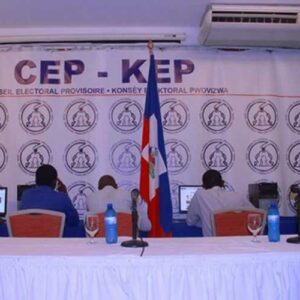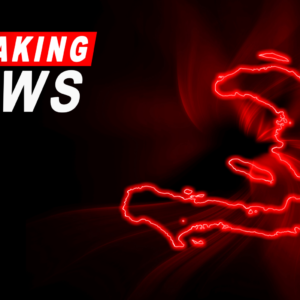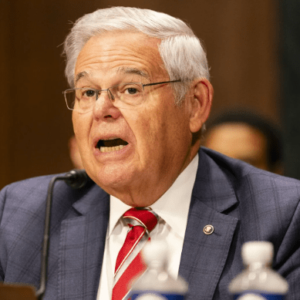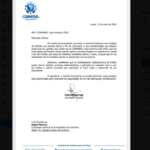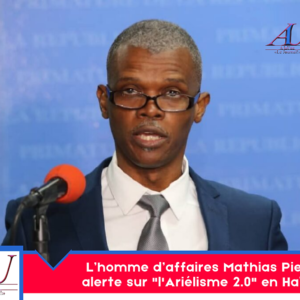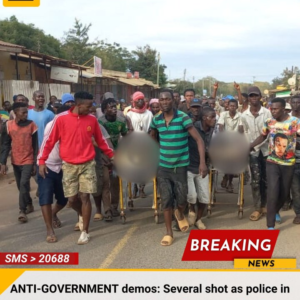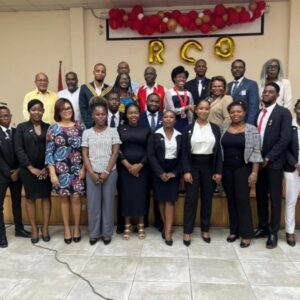US ‘deeply disappointed’ by UN Security Council’s failure to sanction Haiti’s top politician
The Biden administration’s top diplomat at the United Nations on Friday accused other members of the Security Council of blocking U.S. efforts to impose sanctions against a former Haitian senator and Senate leader who is accused of funding armed gangs. The politician, former Senate President Youri Latortue, “exercises considerable control over political and economic life in the Artibonite department, including through the use of violent gangs, which he has funded,” said Linda Thomas-Greenfield, the U.S. ambassador to the U.N., citing a report by a panel of experts on Haiti. The panel was set up by the U.N. in October 2022 after the Security Council unanimously approved sanctions on Haiti, the first authorization since 2017 and the first for a country in the Western Hemisphere. The panel’s job is to make recommendations, based on its investigations, on who should be sanctioned because they pose a threat to Haiti’s peace and stability. The U.N. sanctions are among the harshest, and would freeze a person’s assets while barring them from traveling to most countries in the world. So far, the U.N. has imposed sanctions on only five gang leaders, leading to criticism that the measure is effective because gang leaders typically do not keep their money in banks or have visas to travel to other countries. The United States, along with France, pushed for the inclusion of both gang leaders and politicians on the list, which the panel proposed. “We were deeply disappointed by the unexplained hold placed on Youri Latortue,” Thomas-Greenfield said of the prominent Haitian politician.
Thomas-Greenfield’s comments came after the 15-member Security Council voted unanimously to renew the mandate of the United Nations political office in Haiti for another year. The resolution, drafted by the United States and Ecuador, tasks the U.N. Integrated Office with overseeing the success of Haiti’s new political transition as well as the Kenya-led multinational security support mission.
Thomas-Greenfield’s comments about Latortue are likely to resonate in Haiti, where observers have questioned whether the United States and other countries are still committed to pursuing sanctions following an initial aggressive campaign targeting designated members of the political and economic elite. A veteran politician who once served as an adviser to former President Michel Martelly, Latortue was one of the country’s most powerful politicians when he was in power. Today, he is among a handful of Haitian politicians who have been blacklisted by the U.S. Treasury Department’s Office of Foreign Assets Control and the Canadian government. He has denied all allegations against him and has hired a lawyer to fight the designation, which freezes all assets he owns in the United States and Canada.
Thomas-Greenfield’s comments are the first public acknowledgement of an effort by the United States and others on the Security Council to impose sanctions against Latortue and other powerful politicians in Haiti, and are a window into the divisions in the council over who should be sanctioned. While no one has publicly admitted blocking sanctions against Latortue, the representative of the Russian Federation, which is president of the council this month, hinted at the friction in his comments. Dmitry Polyanskiy, Russia’s first deputy permanent representative to the U.N., said that when it comes to sanctions, he hopes that “the interests of individual council members will not be placed above the task of supporting an inclusive political dialogue.”
Although Russia signaled last week that it had no problem sanctioning people other than gang leaders in Haiti, as long as the evidence supports the request, the country has accused both the United States and Canada of using sanctions to clear the political playing field in Haiti. Polyanskiy’s comments reflect a broader debate within the international community over how best to address the crisis in Haiti and whether those believed to be behind the instability should be on the negotiating table or punished. It’s a problem that even the United States doesn’t seem to be handling consistently. Haitian politicians were invited to a reception at the U.S. Embassy in Haiti last week, and while none of the guests were sanctioned by the Treasury Department, at least one had his U.S. visa revoked.
With Miami Herald

